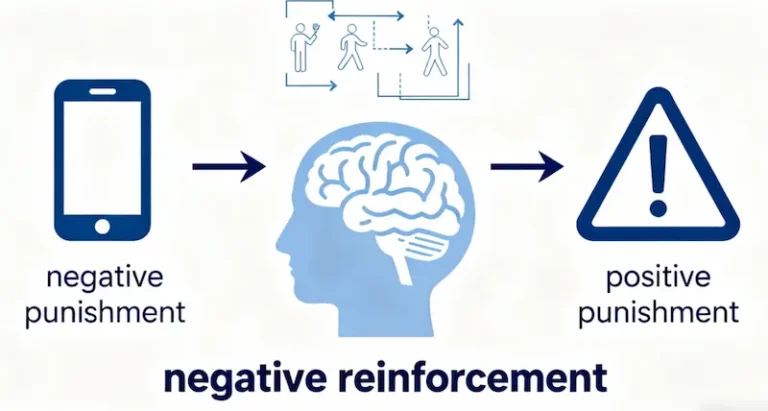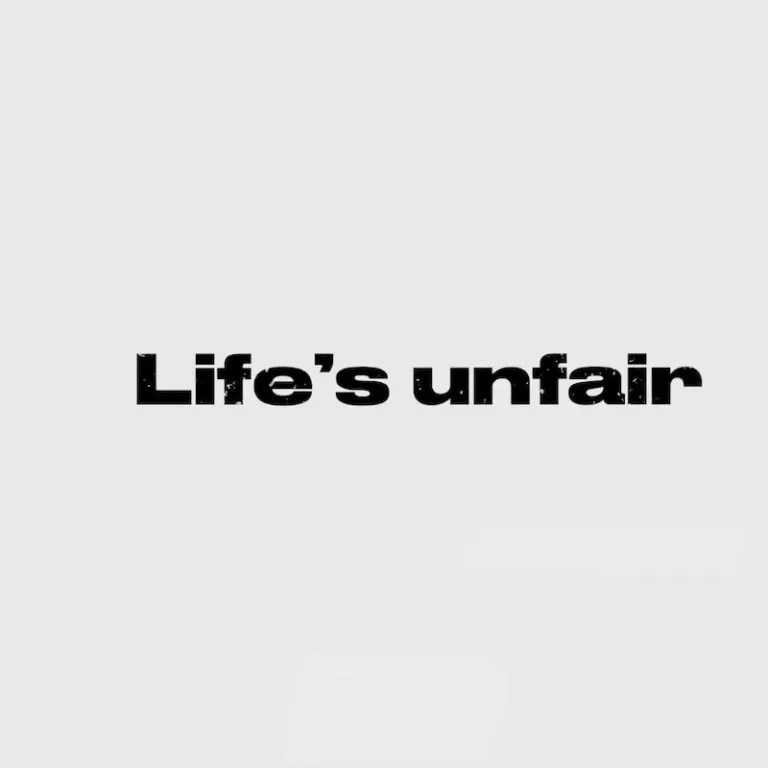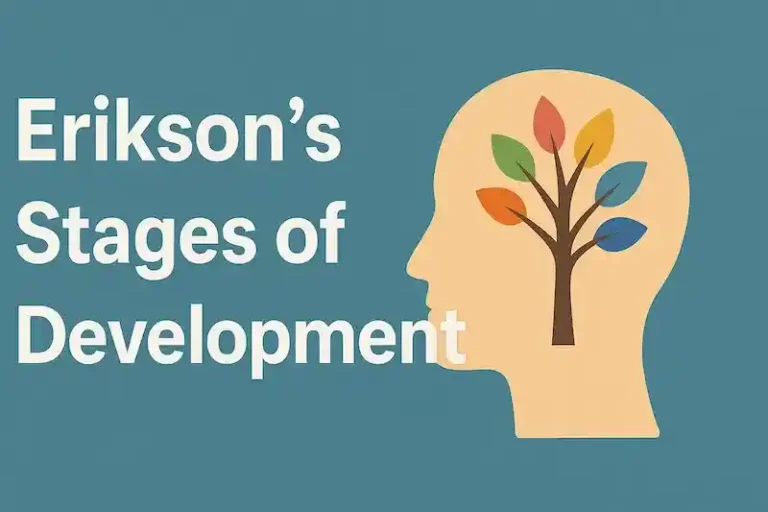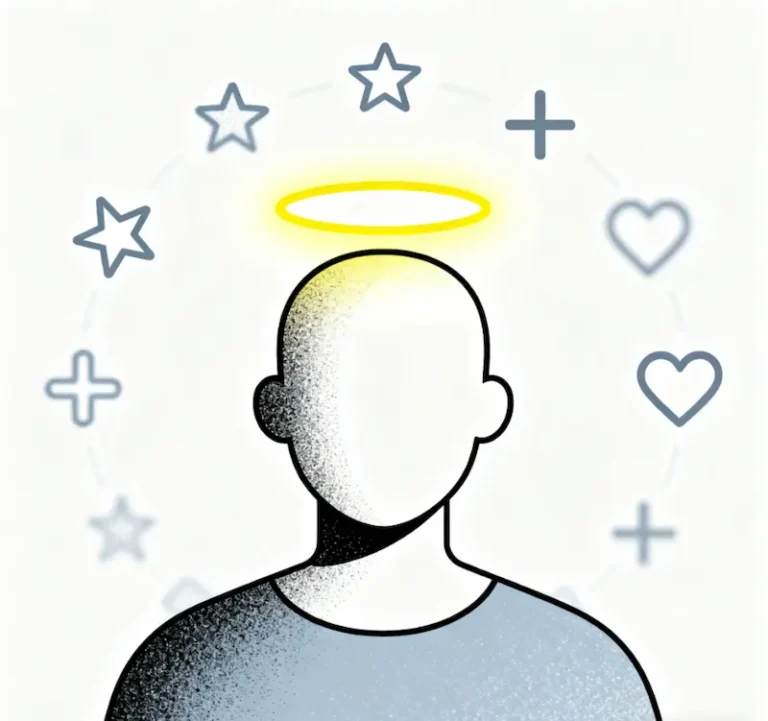Barnum Effect: Why You Fall for Vague Personality Tests (And How to Avoid It)
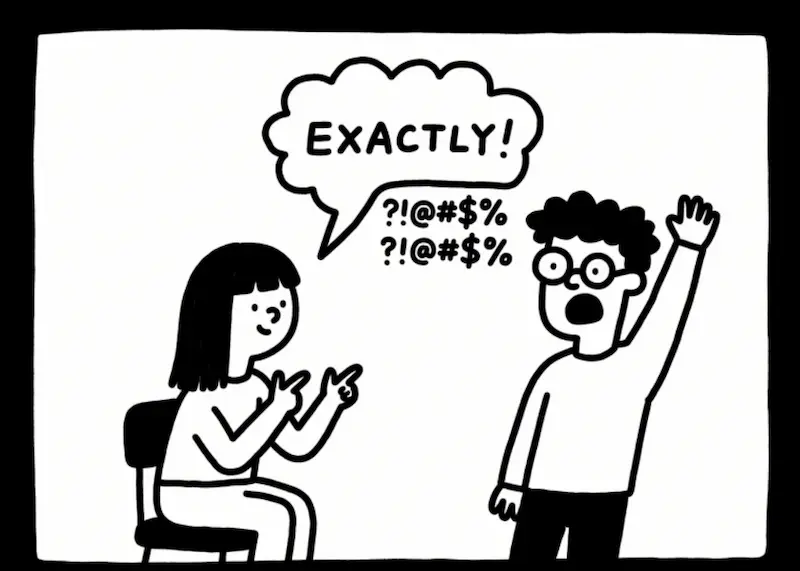
Table of Contents
Have you ever taken the Myers-Briggs Type Indicator (MBTI) test, scrolled through your Co-Star horoscope, or tried a “career personality quiz” on BuzzFeed—only to gasp, “This is exactly me”? You’re not alone. A 2023 survey by the American Psychological Association (APA) found 45% of U.S. adults believe vague personality descriptions from tests or horoscopes are “extremely accurate.” But here’s the truth: Those descriptions work for almost everyone. This phenomenon is called the Barnum Effect—and it’s a psychological trick we all fall for, often without realizing it.
What Is the Barnum Effect?
The Barnum Effect gets its name from P.T. Barnum, the 19th-century American showman and co-founder of Barnum & Bailey Circus. Barnum famously said, “I have something for everyone,” a philosophy that made his circuses wildly popular. He understood people would overlook generic elements if they thought something was tailored just for them.
In psychology, the Barnum Effect refers to our tendency to accept vague, general personality statements as uniquely applicable to ourselves—even when those statements are so broad they could describe 80% of the population. It’s why a horoscope saying “You’ll face a small challenge this week, but trust your intuition” feels personal, or why an MBTI result claiming “You value deep connections but need alone time” seems like it was written just for you.
The effect was first scientifically proven in 1948 by psychologist Bertram Forer. In his now-famous experiment (published in the Journal of Abnormal and Social Psychology), Forer gave 39 college students a “personalized” personality analysis. In reality, every student received the same list of vague statements, including:
- “You have a great need for other people to like and admire you.”
- “Sometimes you doubt whether you’ve made the right decision.”
- “You have unused abilities that you haven’t turned to your advantage.”
When asked to rate how accurate the analysis was (on a scale of 0 to 100), students gave an average score of 85. Forer’s experiment proved: We don’t just want to believe generic descriptions are about us—our brains actively convince us they are.
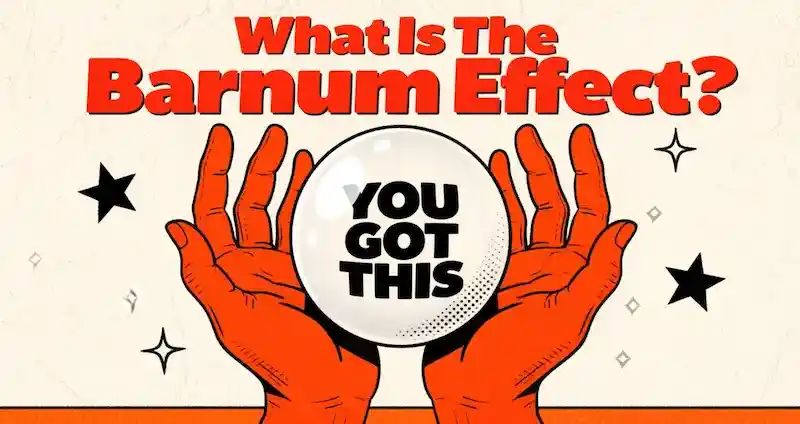
Why Does the Barnum Effect Trick Us?
The Barnum Effect isn’t a flaw in our intelligence—it’s a quirk of how our brains process self-related information. Three key factors make it so powerful, especially for U.S. readers navigating a culture saturated with personality tests and “self-help” content.
1. Most of Us Have Unclear Self-Awareness
Research from Harvard’s Psychology Department (2024) shows only 15% of adults have a “clear, consistent self-concept”—meaning most of us don’t fully understand our strengths, weaknesses, or core values. When our self-awareness is fuzzy, we grasp at any information that seems to “define” us.
Take a recent college grad in Chicago, for example. They’re unsure if they want a corporate job or to pursue art, so they take an online “career path quiz.” The result says, “You’re creative but also value stability—your perfect job balances both.” That’s so vague it could apply to a graphic designer at a marketing firm or a teacher who paints on weekends. But the grad thinks, “This gets me!” because it fills a gap in their self-knowledge.
2. Psychological Suggestion Shapes Our Perception
Our brains are wired to prioritize information that feels positive or validating—a trait psychologists call “confirmation bias.” When we read a vague statement like, “You have a hidden talent others don’t see,” our subconscious mind starts hunting for evidence to support it.
For example, imagine someone sees a TikTok about “signs you’re a ‘hidden leader.’” One sign says, “You often take charge without being asked.” That person might suddenly remember the time they organized a friend’s birthday party or led a work potluck—ignoring the dozens of times they let others make decisions. Over time, they start believing they’re a “hidden leader” because the vague statement planted a suggestion their brain now reinforces.
3. We Trust Authority (Even When It’s Unwarranted)
In the U.S., we’re taught to respect “experts” and popular trends—and personality tests often lean into this. A quiz titled “7 Traits of Successful Entrepreneurs (Based on Stanford Research)” feels more credible than a random post. But most of these “expert” descriptions are just Barnum-style fluff.
Consider the Enneagram, a popular personality system in the U.S. Many Enneagram blogs claim Type 3s are “achievement-oriented go-getters,” while Type 6s are “loyal problem-solvers.” These labels sound specific, but they’re broad enough to fit millions of people. A 2022 study in Personality and Social Psychology Bulletin found 68% of Enneagram users couldn’t tell the difference between their “personalized” Type description and a generic one—yet 90% still swore by the system. We trust the “authority” of the test, so we ignore how vague it is.

How to Avoid the Barnum Effect: 3 Science-Backed Strategies
Falling for the Barnum Effect isn’t a failure—it’s human. But letting vague descriptions define you can limit your self-awareness and even lead to bad decisions (like choosing a career because a quiz said it “fits your personality”). The good news is you can train your brain to resist it with these three strategies.
1. Build Clear Self-Cognition (Don’t Rely on Quizzes)
The best defense against the Barnum Effect is knowing yourself well. Here’s how to do it, using methods recommended by the APA:
- Journal for specificity: Instead of writing “I had a good day,” note “I felt proud when I finished my project, and frustrated when my meeting ran late.” Specificity helps you recognize unique patterns in your emotions and behavior.
- Ask for honest feedback: Talk to 2–3 people you trust (a friend, mentor, or partner) and ask, “What’s a strength I have that not everyone notices? What’s a habit I could work on?” Others see parts of you you might miss.
- Take validated tests (not BuzzFeed quizzes): If you want to use tests for self-awareness, choose scientifically validated ones like the Big Five Inventory (BFI). Unlike the MBTI, the BFI measures specific traits (like extraversion or conscientiousness) and compares your results to real population data—no vague fluff.
2. Develop Critical Thinking: Ask “Is This Specific to Me?”
The Barnum Effect thrives on vagueness. When you encounter a personality description, test, or horoscope, pause and ask these three questions (from the University of California’s Critical Thinking Guide):
- Is this specific? Does it mention unique experiences, habits, or goals—like “You struggle with public speaking because you froze up in a high school debate”—or is it generic, like “You sometimes feel nervous in social situations”?
- Would this apply to most people? If you read the statement to a stranger, would they say “That’s me too”? If yes, it’s a Barnum trap.
- Is there evidence to support it? Do you have real-life examples of this trait, or are you just “wanting” it to be true?
For example, if a career quiz says “You’re meant to work in tech because you’re ‘curious,’” ask: Is “curious” specific? No. Would most people say they’re curious? Yes. Do I have evidence I’d thrive in tech (like enjoying coding or solving tech problems)? If not, the quiz is just using Barnum-style language.
3. Embrace Your Uniqueness—Reject Oversimplified Labels
The Barnum Effect works because we love being “categorized.” It’s comforting to say “I’m an INFJ” or “I’m a Type 7”—but these labels erase the complexity of who you are.
Instead of letting labels define you, focus on your “individual story.” For example:
- Instead of “I’m an introvert,” say “I enjoy small gatherings with close friends, but I can handle big events if I have time to recharge afterward.”
- Instead of “I’m not a ‘leader type,’” say “I prefer collaborating with others, but I’ll take charge if the group needs direction.”
A 2024 study from Yale’s Psychology Department found people who describe themselves in specific terms (not labels) are 40% less likely to fall for the Barnum Effect. They recognize their uniqueness, so generic descriptions don’t feel “personal.”

The Barnum Effect is everywhere—in our Instagram horoscopes, our favorite personality tests, and even the “personalized” career advice we find online. It’s a reminder that our brains want to make sense of ourselves—and sometimes, we’ll accept vague answers instead of doing the work to know the real us.
By building clear self-awareness, thinking critically about the information you consume, and embracing your unique story, you can avoid letting generic descriptions shape your self-image. You’re not a “Type 5” or a “Scorpio trait list”—you’re a person with specific experiences, goals, and quirks that no Barnum-style statement could ever capture.
Now it’s your turn: Have you ever fallen for the Barnum Effect? Maybe you once swore by an MBTI result or a horoscope that felt “too accurate”? Share your story in the comments below—we’d love to hear how you realized it was just a trick. And if you know someone who’s obsessed with personality tests, pass this guide along—it might help them see beyond the vague descriptions.



